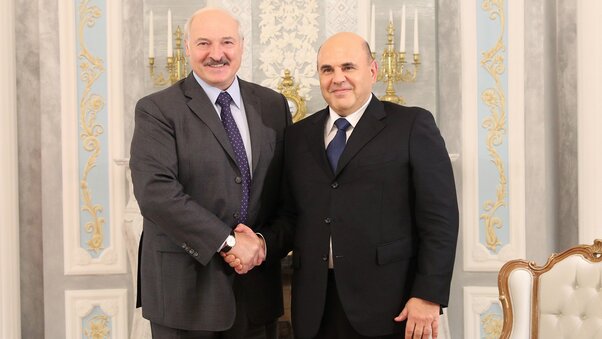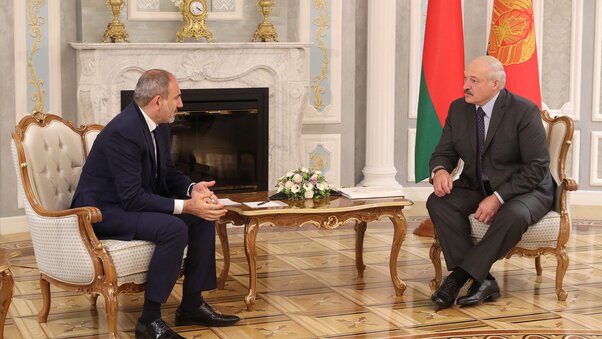Report of Chairman of State Customs Committee Yuri Senko
- 4
- 3:54
Belarus President Aleksandr Lukashenko heard out a report of Chairman of the State Customs Committee Yuri Senko on 5 October.
“First of all, I want you to tell me about the performance of your agency. It will be useful for the assessment of the situation in our economy through the prism of customs services. You realize that the customs service is, more than any other agencies, a mirror of our economy. Are there any bottlenecks? How are we developing in these complicated conditions, first of all, involving the pandemic? In your opinion, what shall we do to keep the economy stable this year?” Aleksandr Lukashenko wondered.
The President also asked about the situation on the borders with Lithuania, Latvia, Poland and Ukraine. “I am especially curious about two Baltic states – Lithuania and Latvia. As you inform me, almost 40% of freight vehicles come from Lithuania and Latvia this year. This is a huge volume. If we take on this flow, logistics hubs of Lithuania will underperform by nearly a quarter,” the head of state said.
Aleksandr Lukashenko said that Belarus and Russia were mulling over the relocation of Belarusian cargos (oil products, potash fertilizers and other goods) from Baltic ports to the Ust-Luga port. “What is the State Customs Committee thinking about the relocation of these cargos? What will it mean for our logistics centers? We have strong logistics centers. Many services, including for or economic operators and subjects of the EAEU countries are provided in Lithuania. But, as far as I know, we can provide these services to these freight carriers in Belarus. What do you think about it?” he asked.
Yuri Senko informed the President about the foreign trade statistics. In his words, 71 million tonnes of goods were transported through the Belarusian customs border with Baltic countries, Poland and Ukraine. This volume is 15% lower than in the same period of 2019. “Russia also influenced that, as its export of oil products to Western Europe fell by 30%. Our export and import fell by only 10%,” the chairman of the State Customs Committee said. “This is mostly railway transport. The situation at automobile border checkpoints has not almost changed, only at the beginning of the pandemic when the consumer capacity in Europe and the EAEU countries reduced. But all routes are being restored now.”


